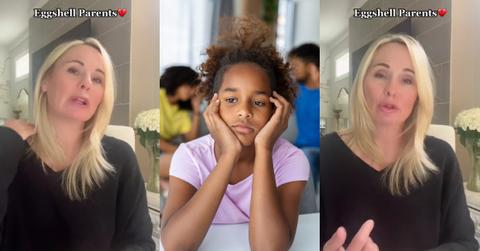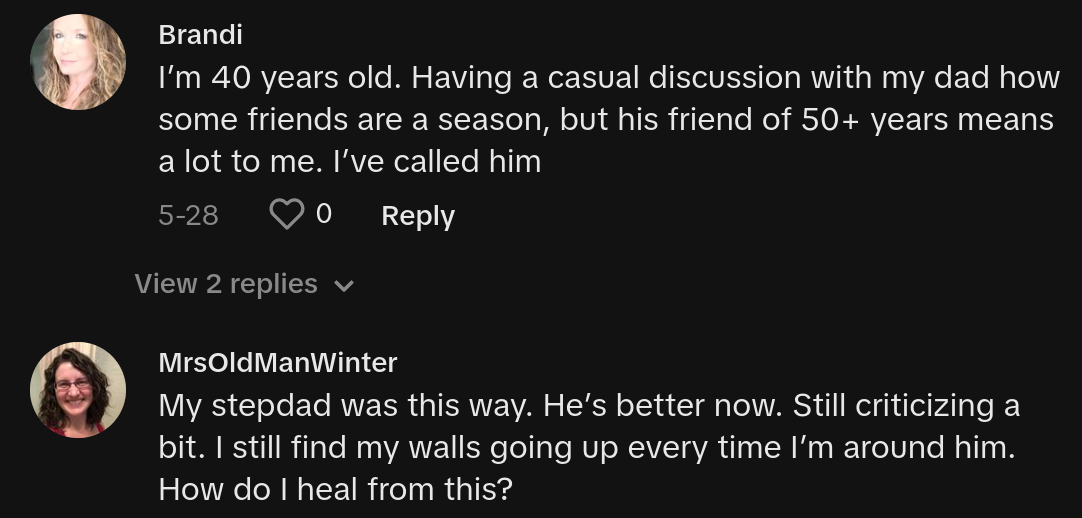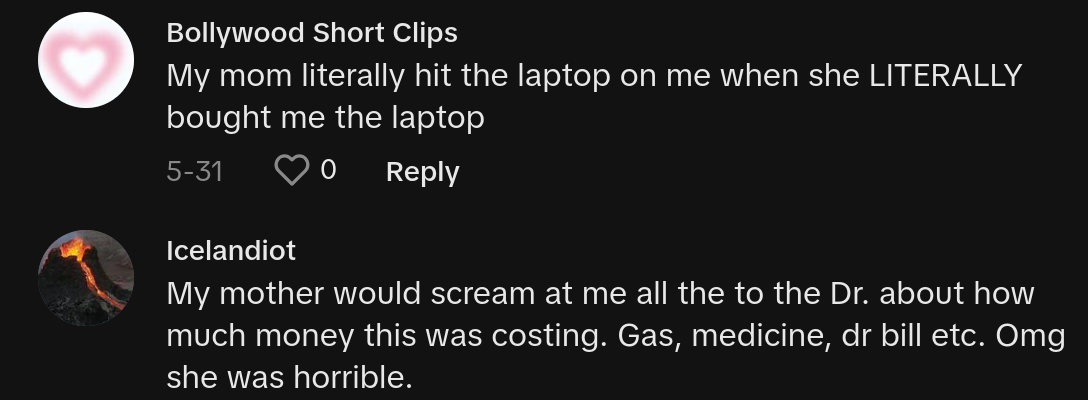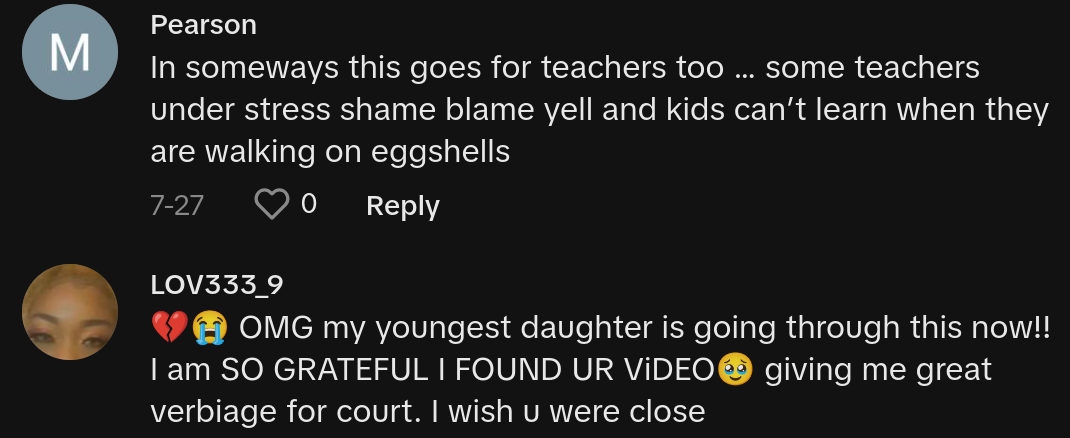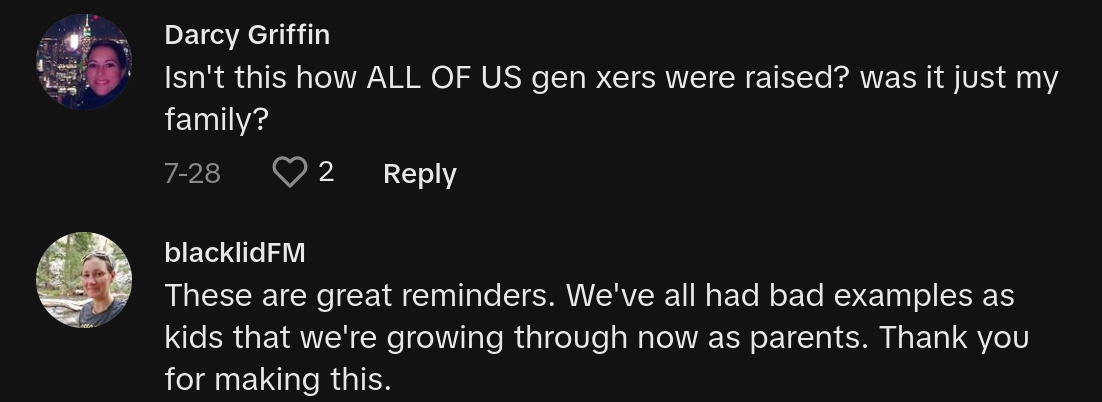Psychologist Warns Against “Eggshell Parenting,” Says It Causes Lifelong Attachment Issues
"There's always going to be significant-high highs and low lows," with eggshell parents, Dr. Kim says in her now-viral post.
Updated Feb. 29 2024, 4:40 p.m. ET
Psychologist Dr. Kim Sage (@drkimsage) posted a viral TikTok criticizing the telltale signs of eggshell parents, highlighting several key behaviors that folks should look out for to ensure that they aren't becoming one of these guardians, and for kids to be mindful of these personality traits in their own folks/family dynamics.
She begins her video by stating: "At the heart of emotionally unsafe parenting, is real emotional endangerment. It really is, when I talked about 'eggshell parents' a way of putting your child in a position where they have to always be hyper-vigilant to what may or may not happen next."
She says that one of the trademarks of an "eggshell" parent is like being on an emotional rollercoaster with them and that kids don't really know what emotional state their folks are going to be in on any given day and are worried that any comment or reply that they make might spoil this mood or take it to a place that's mercurial.

"There's always going to be significant-high highs and low lows," with eggshell parents, Dr. Kim says, which constantly keeps children in a state of hypervigilance as to their parents' emotional state. She says that kids are constantly on the lookout for moments that can quickly turn "unsafe" which isn't the best for kids' mental health according to several online resources.
The second trademark of eggshell parenting, according to Dr. Kim, is verbal abuse, or utilizing words in some way to make a child feel bad about themselves that take on the form of threatening, and/or shaming kids "so when you make a mistake as a child it's not about the fact that you're a developing child it's the fact that you must be taught what you did wrong and punished" adding that kids need to "feel bad for it."
She says that one of the ways eggshell parents get these guilt trips going is "a lot of yelling" and "screaming" that either occurs at "the child" or is directed at someone's partner as part of some communal shaming/anger session.
Dr. Kim goes on to say that "screaming is very common" as part of the eggshell parents' handbook.
"Shaming, blaming, and criticizing," are also the cornerstones of eggshell parenting, Dr. Kim says, and that these behaviors will then take precedence over actually teaching a kid a lesson: the focal point is making them feel bad and for parents to vent their frustrations.
She says that while eggshell parents will, "at times" be supportive of their kids, that they can also fall into the behavior of "mocking" kids or "invalidating" their feelings, which only further servers to keep kids on guard as they don't know when their Jekyll & Hyde parent will go one way or the other.
Additionally, Dr. Kim says these parents may even intentionally employ "false accusations" as a manipulation tactic to get their kids worried about whether or not their behavior is up to snuff.
"There can be intentional gaslighting," as well, she said that'll lead kids to thinking that something didn't happen, when it did, and that there's something wrong with the brain because they can't even accurately recall events.
The destruction of "loved possessions" that a kid has as a means of punishing them and teaching them a lesson is another tool of the eggshell parents' trade, the doctor says.
This, unfortunately, creates attachment issues, according to Dr. Kim, which doesn't allow kids to develop any types of bonds with their belongings because they're afraid of getting too emotionally invested, as they fear that it can be taken away at any time.
She capped off her video by stating that another tactic eggshell parents use in order to gain dominance over their kids' lives is to isolate children from their friends and loved ones, but "never" in a consistent way so that children are always left on guard.
Sadly, Dr. Kim's portrait of a dysfunctional eggshell family hit home for a lot of folks who responded to her video: "This is my family. Constantly dancing around my father’s moods and my mother’s coping mechanisms. Neither able to connect w/me on any meaningful level," one person wrote.
Another said that some of the tactics she highlighted were all too familiar: "The gaslighting is so real. After my mom and dad got divorced my mom treated me like her therapist and she claims she never did that now. So hurtful."
Someone else remarked: "At home, I could be punished for doing something one day, then the next, that thing was perfectly fine to do, then punished for it again another day."
While another TikToker had a much more grim outlook of the way that they were raised: "It was more like a battle field - you had to worry about sniper fire and bombs going off. Truly feared for my life. Father was rager / mother useless"
Breaking the cycle of abusive behaviors can be difficult, especially when someone has kids of their own, and no person is perfect: parenting isn't a one-size-fits-all technique. However there is one key element highlighted by Dr. Kim in her video that distinguishes abusive/ugly behavior: when she mentioned that certain behaviors come in the way of a child's learning.
Listening to hear video, it seems that remembering a child is going to make mistakes and that these "errors" are actually stepping stones on the path of their development, and having patience with that development and holding steadfast to the mindset that you're helping to prepare a person to grow into the kind of person you'd root for in a movie or novel, could be a strong foundation for any parenting plan.
